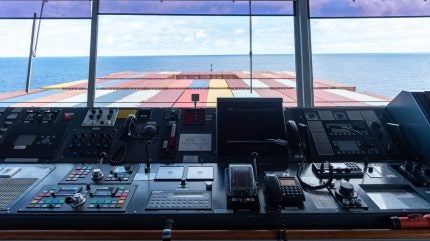Remote pilotage shows promise but hurdles remain, says study

A new report from the International Study on Remote Pilotage indicates that proposed remote pilotage solutions demonstrate potential applications but states that several key challenges must be addressed before advancing.
The International Maritime Pilots’ Association (IMPA), in partnership with the Canadian National Centre of Expertise on Maritime Pilotage (NCEMP), and the Canadian Coast Guard, have published the report.
Discover B2B Marketing That Performs
Combine business intelligence and editorial excellence to reach engaged professionals across 36 leading media platforms.
The study examined the technical readiness of proposed remote pilotage solutions and outlines current capabilities of the technologies.
It also identified challenges such as system redundancy and support for essential pilotage tasks, which must be addressed before moving to trial phases in mandatory pilotage areas.
The report highlights risks related to shared situational awareness, collision avoidance, relative navigation, and manoeuvring near other vessels and infrastructure.
NCEMP executive director Captain Alain Arseneault said: “The first time around, we wanted to see what was out there and not put people off by being too prescriptive. We had anticipated a lot of interest as a result, but this did not materialise.
“We have learned through this process that a more detailed set of goal-based requirements may help identify a minimum viable solution we can use in the study.”
The findings are based on desktop assessments of remote pilotage solutions submitted by manufacturers and system integrators in response to an IMPA request for information (RFI) issued in November 2024.
Lloyd’s Register acted as technical adviser during these assessments, which took place in April and May 2025.
Canadian Coast Guard commissioner Mario Pelletier said: “The Canadian Coast Guard is pleased to contribute to this international effort, which is helping us explore how navigation services may evolve in the years ahead.
“The insights gained through this work will help strengthen our own services and ensure we remain ready to meet future needs, while sharing lessons with partners worldwide.”
IMPA emphasised the need for mature solutions to uncover the capabilities, limitations, and prerequisites of remote pilotage in mandatory pilotage areas such as port approaches, ports, canals, rivers, and lakes.
The association also acknowledged “scepticism” regarding remote pilotage trials and emphasised the need for further technical maturity.
To support future development, IMPA and its partners plan to issue a revised RFI with detailed requirements for remote pilotage trials in mandatory areas during the fourth quarter of this year.
IMPA stated that interested manufacturers and system integrators can engage directly with IMPA or NCEMP for more information.
IMPA president Simon Pelletier said: “We have had a glimpse of what might be possible, but we are not there yet.
“Our primary concern is how to conduct trial phases that are not skewed by the limitations of technology solutions. Artificial limits will not help us deliver the objectives of the study.”
IMPA, established in 1970, represents pilots across more than 50 countries with over 8,000 members.




